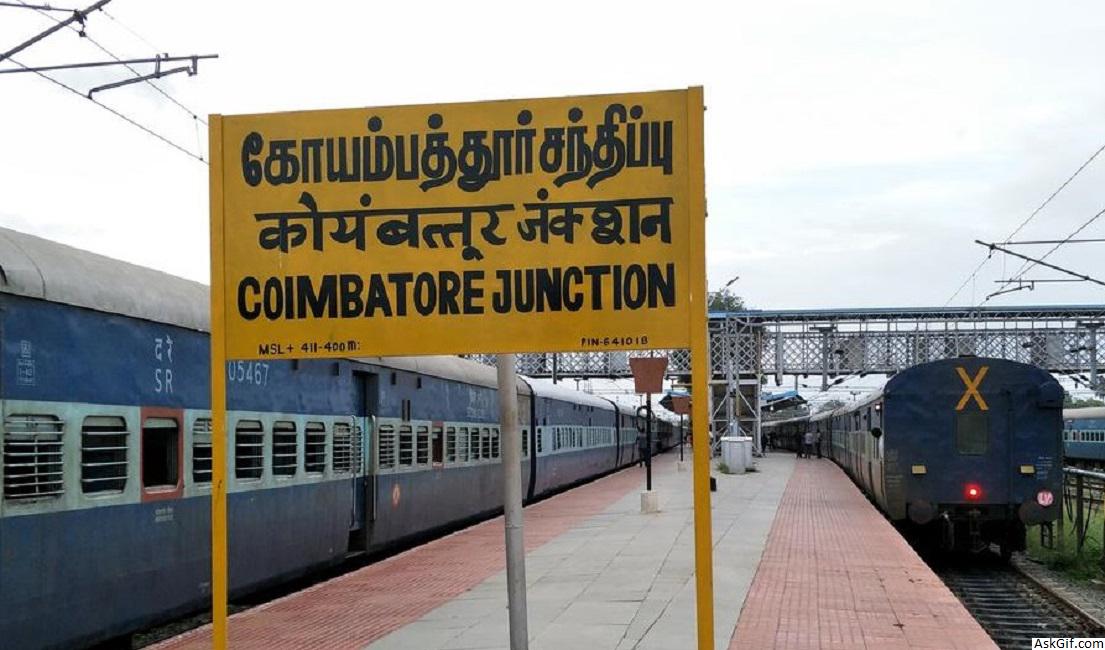
Why transliteration of place names backfired on Tamil Nadu govt
The Tamil Nadu government has come under fire for inconsistently transliterating the names of 1,018 places in the state into the English alphabet.

Even as the Tamil Nadu government faces an onslaught of criticism over the renaming of 1,018 places, which is seen as an inconsistent attempt at transliterating these names to the English alphabet, experts have raised the issue of lack of transparency and cohesion in the rechristening process.
The renaming was announced through a notification issued on June 10, which contained the new names of districts like Coimbatore, Vellore, and Thoothukudi as Koyampuththoor, Veeloor, and Thooththukkudi, respectively.
The notification had said that various district collectors had recommended the new names, which was proofread by a committee of experts, led by K Pandiarajan, the state Minister for Tamil Official Language.
Related news: Changing place names in TN makes no difference until caste tags removed
But there was no information regarding the members of the panel and who the consulted Collectors were before the new spellings were brought into effect.
Tamil development directorate chief G Vijayaraghavan told The Federal that a state-level expert committee, comprising linguistic experts, had looked into the recommendations. Collectors too had held discussions with experts from their districts.
‘Independent’ expert panel
But it has emerged that the linguistic experts mostly worked independently on proofreading the recommendations. V Jayadevan, one such expert involved in the proofreading exercise, said there were several others like him but they did not work together.
As a result, one can find inconsistencies in the final list. Jayadevan accepted this, saying names of some areas had the suffix -paakkam while others had -baakkam. But it should have uniformly been -pakkam, he said.
Mainly, the names were inconsistent in the usage of short and long vowels. For example, Vellore, which is pronounced in Tamil as ‘way+loor’, has been spelt as Veeloor. But Melur, which is pronounced as ‘may+loor’, has been renamed as Meloor only, without the extra ‘e’.
“I had suggested the usage of a, e… for short vowels, and aa, ee… for the long ones,” said Jayadevan.
However, other experts may have thought differently.
“Collectors of various districts had taken up suggestions made by local experts and sent them to the Tamil development department. Later, we handled the task of proofreading them. Since the process was carried out by several experts, the names were inconsistent,” said Jayadevan, adding that at least a small committee of experts should have scrutinised the final list before it was published.
He, however, said the government had taken note of the inconsistencies and would revise the names soon.
The other way round
To solve this problem, linguistic expert Aazhi Senthilnathan said the government should first develop a standard to transliterate Tamil characters and speech sounds into Roman scripts.
“It should be done by linguistic experts who have knowledge in phonetics. Then the state must pass a government order in this regard and get it certified by a body like the International Organization for Standardization,” he said.
Related news: Mayilaap‘poor’ transliteration by TN govt irks linguists
Moreover, Tamil is not only the official language of Tamil Nadu and Puducherry, but also of Sri Lanka and Singapore. It is also a medium of instruction in many schools in Malaysia.
“The representatives from all four countries must be involved in the standardisation process. With a standard in place, any number of names could be respelt,” said Senthilnathan.
Uniqueness of languages
As Vellore was spelt Veeloor, people started trolling the government on social media. But a non-Tamil speaker will not pronounce the name of the district correctly with both the spellings. While Vellore will be pronounced ‘well+loor’, Veeloor will be pronounced ‘wee+loor’. However, Senthilnathan said the concern should be on standardisation and not how non-Tamil speakers would pronounce names.
“Many countries use the Roman script. But the pronunciation of Roman characters in their languages will be different from the English pronunciation,” he said.
For instance, the word ‘qian’ in Chinese is pronounced more or less as ‘chian’. However, this Chinese sound does not exist in English.
Similarly, the Bengali word ‘Rasgulla’ is pronounced by people in West Bengal and Odisha as Roshogolla or Rosogolla.
“So, people coming from other states must learn to pronounce the names of places instead of the government missing out on standardisation to facilitate pronunciation,” said Senthilnathan.
Secularisation of names
While the de-Sanskritisation of names has drawn praise, language enthusiasts have felt that it was done only on a small scale.
For instance, Srirangam has become Thiruvarangam by replacing the Sanskrit word ‘Sri’ with the Tamil ‘Thiru’ — both denote respect. But names of Virudhachalam or Jayankondam have not been included in the list, said Vinayagam, a professor and language enthusiast.
“Virudhachalam has a Tamil name, Thirumudhukundram, which is found on inscriptions. Similarly, Jayankondam can also be called Vetrikondan — both ‘jayam’ and ‘vetri’ mean victory,” he said.
Related news: Tamil vs Sanskrit: What is God’s favourite language?
“There are hundreds of places whose names have the influence of Sanskrit. The government must rename them, instead of respelling places,” Vinayagam sought.
Even after the renaming of Srirangam as Thiruvarangam, the place continues to bear the name of Aranganathar, a Vaishnavite deity, he said.
After the 19th century, Tamil was modernised and is being seen as a language spoken by all, irrespective of caste and religion. But many places had been named after deities of various religions. The government must also consider renaming these places, Vinayagam said.

